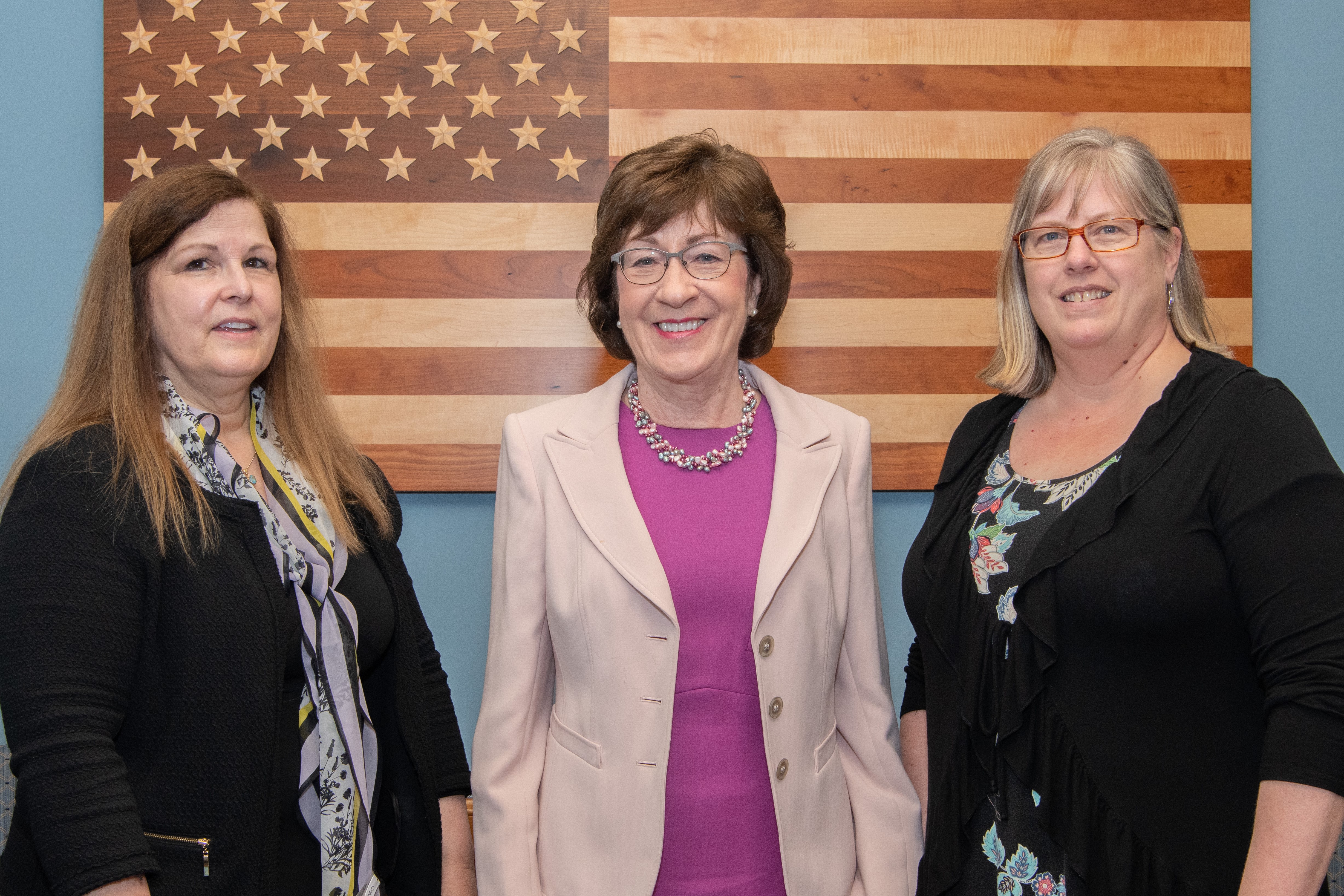Executive Director of the Maine Long-Term Care Ombudsman Program Discusses How Technologies Improve Quality of Life and Independence for Seniors and Individuals with Disabilities

Click HERE for a high-resolution photo of Senator Collins and Ms. Gallant
Click HERE to watch Senator Collins’ opening statement. Click HERE to download high-resolution video.
Click HERE to watch Senator Collins’ Q&A on with Brenda Gallant on technology assessment practices. Click HERE to download high-resolution video.
Click HERE to watch Senator Collins’ Q&A with Brenda Gallant on challenges the Ombudsman program faces. Click HERE to download high-resolution video.
Click HERE for b-roll of Senator Collins and Brenda Gallant.
Washington, D.C. — At a Senate Aging Committee hearing this morning chaired by U.S. Senator Susan Collins, Brenda Gallant, the Executive Director of the Maine Long-Term Care Ombudsman Program in Augusta, discussed how assistive technologies have proven to be successful in helping older Americans live independently, and that federal support is critical to their continuation.
Senator Collins questioned Ms. Gallant about how the Ombudsman Program assesses what kinds of technology would be useful to an individual who looks to be a promising candidate for transitioning from a nursing home or other institutionalized care facility back to their own home.
“Any individual that would be transitioning would have an assistive technology assessment performed, and based on that assessment, the individual would be visited… in the setting that they're in and also include looking at the home that they're going to move into,” said Ms. Gallant. “[We] really look at the medical needs and the functional capabilities of the individual to develop a very individualized plan. The individual would be given training and support with respect to how to use the technology and then ongoing support for any questions or concerns.”
In her testimony, Ms. Gallant explained how more than 140 nursing home residents and hospital patients have been able to transition back to the community since Maine’s Homeward Bound Program began in 2012, including an individuals who transitioned out of a nursing home after 15 years. Specifically, Ms. Gallant spoke about a 58-year-old woman diagnosed with muscular dystrophy who had been admitted to a nursing home and resided there for 17 months.
“She expressed her wish to leave the nursing home, but was discouraged by both the nursing home staff and her physician, who felt that her needs could not be met in the community. However, she was determined to be in her own apartment,” said Ms. Gallant. “A critical part of her planning was access to assistive technology. An assessment recommended an eye-gaze system that enables her to use her computer with her eyes to communicate through email and have access to the Internet, as well as remote access monitoring that provides motion detectors and notifies caregivers if her routine is not followed… Despite the initial skepticism regarding her ability to live independently, she has been successful in living on her own for the past six years.”
Senator Collins also asked Ms. Gallant about the challenges the Homeward Bound Program faces in Maine.
“I know from talking with home health agencies in Maine that they feel stretched very thin, that there's a shortage of home health workers. And I would think that in addition to the technology, that may be an important element as well,” said Senator Collins. “What is your experience about the biggest challenges?”
“What we're finding is [that] finding affordable accessible housing across the state is a real challenge. Additionally, as you said, the direct-care worker shortage also makes it a challenge to be able to arrange home care services which are so critical in terms of the planning,” replied Ms. Gallant. “Assistive technology is such a critical part of this and really can supplement in terms of staffing… it's really a team approach and being diligent in overcoming these barriers and we've found that we can.”
The Maine Long-Term Care Ombudsman Program collaborates with the Maine Department of Health and Human Services (HHS) in administering the Homeward Bound Program, sponsored by Maine’s Money Follows the Person Program. Homeward Bound is a voluntary program that provides participants the tools and technology necessary to move out of a nursing home or other institutionalized setting to a home, apartment, or community-based setting.